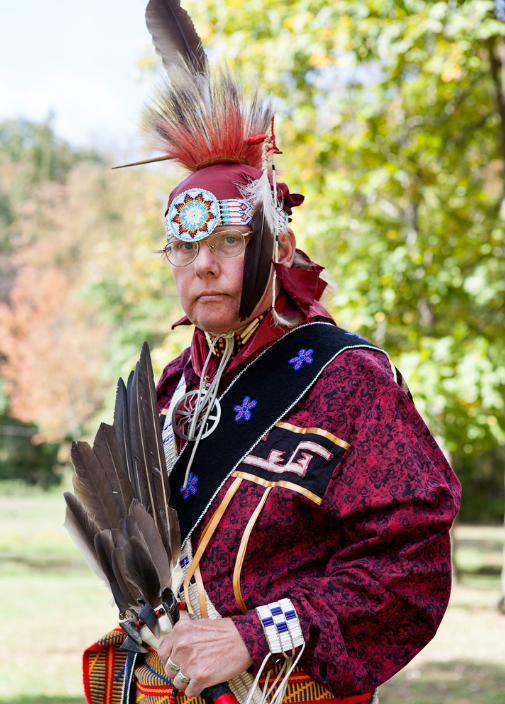Guest Opinion. Indigenous McCarthyism seeks to establish an internal termination process through disinformation and divisiveness. State-recognized tribes have been accused of being frauds, and historically and politically problematic.

On October 29, 2024, slanderous flyers were distributed at the National Congress of American Indians (NCAI) Annual Convention by a group calling themselves the United Indian Tribes of Oklahoma. Comparable divisive disinformation was used in the recent failed attempts to have state-recognized tribes removed from the Indian Arts and Crafts Act (IACA) of 1990 (P.L. 101-644) and excluded from the voting membership of the NCAI. These efforts were in complete disregard to the NCAl Code of Conduct.
The recent attempts to terminate the rights of state-recognized tribes is a legacy of settler colonialism. Identity policing, divisiveness, and disinformation are destructive colonial weapons. For more than 500 years, egocide and policide have been used against Indigenous peoples. Egocide is the bullying and intimidation that destroys an individual’s Indigenous identity by creating insecurity and self-shame. Policide is the destruction of a tribe’s identity for political reasons. Blacklists of state-recognized tribes have been created on social media and on websites. They describe state-recognized tribes and their members with callous words such as fake Indians, pretend Indians, and wannabes.
Identity policing is based on settler colonial stereotypes of who is and who is not a Native American. During the nineteenth and twentieth centuries, these stereotypes were used in the professional testimonies of a handful of anthropologists to eliminate the sovereignty of more than 100 tribes across the country and lose more than a million acres of tribal land. In California, the Muwekma Ohlone tribe lost their federal recognition and was declared extinct. The Muwekma Ohlone remain strong and resilient as a non-federally recognized tribal entity.
According to the United States Government Accountability Office, more than 20 percent of Native Americans are citizens of state-recognized tribes. They are legally recognized by the states in which they reside including Alabama, California, Connecticut, Delaware, Georgia, Louisiana, Maryland, Massachusetts, Montana, New Jersey, New York, North Carolina, Texas, Vermont, Virginia, and Washington.
As noted in “The Scope of State Power Over Indian Affairs” in Felix S. Cohen’s Handbook of Federal Indian Law, the legal status of state tribal recognition is a matter of state law. States have the legal authority to recognize tribes because of federal empowerment to the state. The 10th Amendment to the United States’ Constitution empowers states with the legal authority to recognize tribes within their borders. It gives states legal powers that are not delegated in the United States Constitution. State-recognized tribes have a legal status, a governmental authority, they can participate in state programs, and they are allowed to have reservations within the boundaries of the state. State-recognized tribes have the rights of self-government and tribal constitutions determine the criteria for an individual's enrollment.
Today, there are more than 100 state-recognized tribes. The Lumbee Tribe of North Carolina, the Echota Cherokee Tribe of Alabama, and the United Houma Nation of Louisiana each have more than 10,000 members. Enrolled members of state-recognized tribes are considered racial minorities, and they benefit from the full range of protection from discrimination provided by federal civil rights laws. They are subject to the same public health concerns as citizens of federally recognized tribes. These issues include disproportionate disease, lower life expectancy, and a poor quality of life from economic hardships. Federal agencies are required to identify state-recognized tribes and include them in federal decision-making concerning the environment and public health.
As Native Americans, we need to be resilient against all aspects of settler colonialism and put an end to the divisiveness and disinformation created by egocide and policide. Hopefully, these colonial weapons will be disarmed by the next seven generations. It is crucial to our survival in Indian Country and beyond. We are all related and we are on this journey together.
Dr. Kenneth Barnett Tankersley belongs to the Piqua Tribe of Alabama. Tankersley is a retired Anthropology Professor and Fellow of the Graduate School of the University of Cincinnati. He served as the director of Native American Studies at Northern Kentucky University, a gubernatorial-appointed member of the Kentucky Native American Heritage Commission, and advisory board member for the Kentucky Center for Native American Art and Culture.
Help us defend tribal sovereignty.
At Native News Online, our mission is rooted in telling the stories that strengthen sovereignty and uplift Indigenous voices — not just at year’s end, but every single day.
Because of your generosity last year, we were able to keep our reporters on the ground in tribal communities, at national gatherings and in the halls of Congress — covering the issues that matter most to Indian Country: sovereignty, culture, education, health and economic opportunity.
That support sustained us through a tough year in 2025. Now, as we look to the year ahead, we need your help right now to ensure warrior journalism remains strong — reporting that defends tribal sovereignty, amplifies Native truth, and holds power accountable.
 The stakes couldn't be higher. Your support keeps Native voices heard, Native stories told and Native sovereignty defended.
The stakes couldn't be higher. Your support keeps Native voices heard, Native stories told and Native sovereignty defended.
Stand with Warrior Journalism today.
Levi Rickert (Potawatomi), Editor & Publisher

